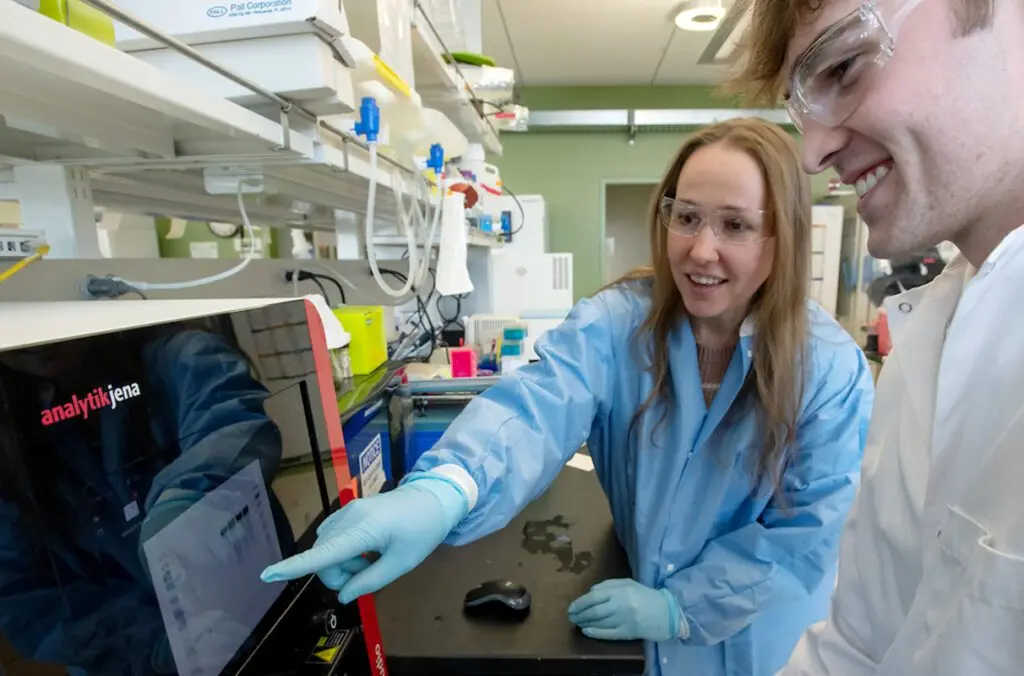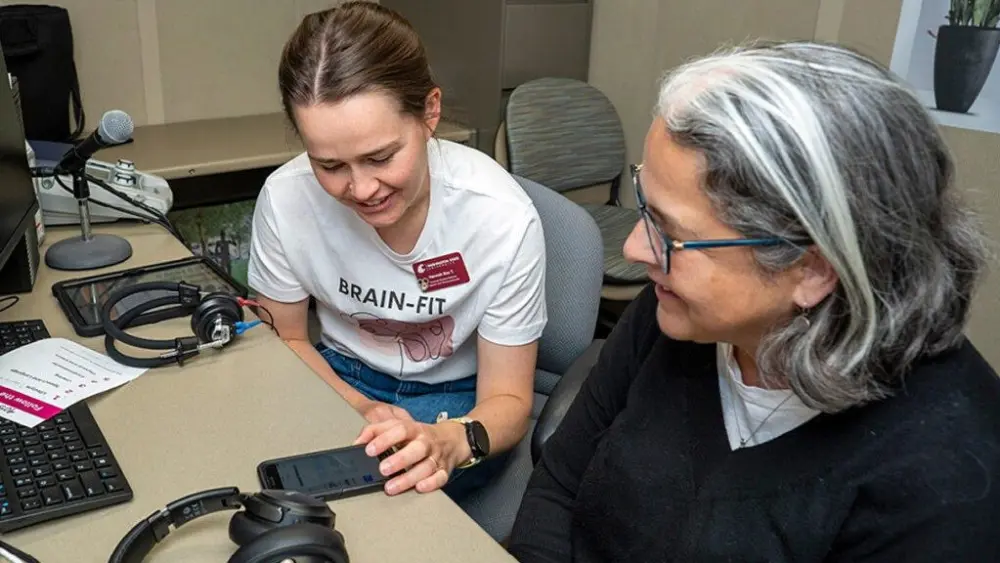PULLMAN, WA – As federal and state money for research is becoming more and more difficult to secure, Washington State University’s College of Veterinary Medicine has launched a new grant program to fund innovative efforts aimed at advancing science and improving global health.
The college recently awarded its first three grants through the newly established Pump Priming Research Program, designed to support bold, interdisciplinary projects with strong potential for external funding. The inaugural recipients are Viveka Vadyvaloo, director of the Paul G. Allen School for Global Health, whose research will focus on bubonic plague; Heather Koehler, a faculty member in the School of Molecular Biosciences, who is studying Mpox; and Jason Park, from the Department of Veterinary Microbiology and Pathology, who is investigating vector-pathogen interactions. Vadyvaloo and Koehler each received $125,000, while Park was awarded $150,000.
“In the past, our intramural grants topped out at around $20,000, which limited the scale and scope of what could be done,” said Jon Oatley, the college’s associate dean for research who spearheaded the program. “This program is about enabling something bigger — more ambitious ideas, more interdisciplinary teams and the freedom to take calculated risks that could pay off in a big way.”
We want to support projects that have the power to transform knowledge and attract the kind of funding that leads to lasting impact — for the college, the university, and the world.
Jon Oatley, associate dean for research
WSU’s College of Veterinary Medicine
The program is funded through the college’s Strategic Research Fund, which is operationalized through return-on-investment dollars generated by faculty research activity. Oatley said he is hopeful the grants can be offered at least every other year.
“We’re working to elevate the college’s research enterprise — both in terms of the impact of our research outcomes and our ability to compete for higher levels of external funding,” Oatley said. “We want to support projects that have the power to transform knowledge and attract the kind of funding that leads to lasting impact — for the college, the university, and the world.”
After a call for research proposals was put out, 12 letters of interest were received, with nine full proposals ultimately being submitted for review. An ad hoc committee of internal faculty reviewers was established to evaluate the proposals and to offer feedback and comments. Based on those evaluations, a select group of applicants was invited to participate in an oral defense — modeled after a graduate thesis defense — where they presented their proposals and addressed questions. The three projects selected for funding stood out for their scientific merit, originality, cross-disciplinary scope and potential for return on investment.
“They weren’t just strong scientifically — they also demonstrated high potential for external funding and societal benefit,” Oatley said. “As the name implies, we’re priming for something bigger — projects that will generate great data and make strong cases for follow-up funding.”
Vadyvaloo — who will use her grant funding to explore how Yersinia pestis, the bacterium that causes bubonic plague, is transmitted by infected fleas — said she is honored to be among the inaugural recipients and excited to see how the program develops and supports faculty research.
“This is a forward-thinking initiative that provides stimulus funding to help researchers explore new, innovative ideas, gather preliminary data and build a strong foundation for future grant proposals,” she said. “This kind of support will expand the college’s research portfolio, encourage collaboration and create valuable opportunities for both trainees and research faculty.”





